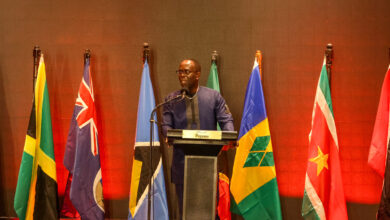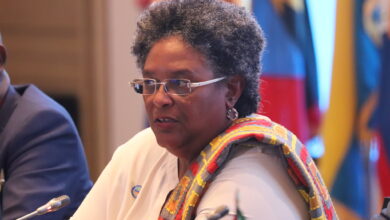(CARICOM Secretariat, Turkeyen, Greater Georgetown, Guyana) The critical role of education in the development of the Caribbean Community (CARICOM) will be among the main issues participants of the New York Conference on the Caribbean will consider when they meet in an open session in Brooklyn, New York, USA, next week.
The New York Conference on the Caribbean, which coincides with events to mark Caribbean-American Heritage Month in the United States, is being held 19-20 June 2008.
The two-day New York Conference on the Caribbean will include discussions on education, trade and investment, and high level meetings between Heads of Government and key officials including Congressman Charles Rangel, Chairman of the Ways and Means Committee of the House of Representatives; Mr. David Paterson, New York Governor; Mr. Michael Bloomberg, Mayor of New York; Mr. Marty Markowitz, Brooklyn Borough President, and top executives of Wall Street.
Strengthening collaborative ties between New York and CARICOM higher education institutions is the focus of an Education Symposium to be held at the Marriott New York at the Brooklyn Bridge on Thursday 19 June 2008.
CARICOM Heads of Government, delegations from regional capitals, and representatives of banks, and the academic community, will be among the participants at the event which is hosted and sponsored by Medgar Evers College.
The symposium is expected to highlight the advantages of existing collaborative models, and discuss the role of the Diaspora in expanding ties between educational institutions in CARICOM and North America.
Education, and the role of the Diaspora in the sector were among the highlights of the first Conference on the Caribbean held in Washington DC 19-21 July 2007. That conference took the format of three concurrent fora – a Private Sector Dialogue, an Experts Forum, and a Diaspora Forum. The latter two focused heavily on education.
The Experts Forum deliberated on issues that were considered critical to the creation of a level of international competitiveness including education, health and gender, and security. There was the recognition that education, in particular, paid a critical role in the process of development and participants had highlighted the need to upgrade teacher education, introduce improved teaching methodologies and correct the gender imbalance regarding output at the tertiary level based on the predominance of female graduates at this level.
It was proposed then, that in order to respond to the challenges in the regional education sector, greater emphasis should be placed on transforming curricula to meet labour market demands and to ensure that education contributed to the competitiveness of economies of the Caribbean.
The Diaspora Forum concluded that a well-educated youth population, both in the Caribbean and the Diaspora, was the most critical requirement for a sustainable future of both communities and that building knowledge and creativity among youth should be the highest priority of regional governments, the Diaspora and the United States. Roles for the CARICOM Youth Ambassadors Progamme were identified. Recommendations were made for the development of Youth Exchange Programmes through linkages between Universities and Colleges in the Caribbean and like institutions in the US, and for the utilization of Information Communication Technologies (ICT) to promote linkages between Caribbean youth and those in the Diaspora.
The symposium in New York is expected to follow–up on these recommendations.





